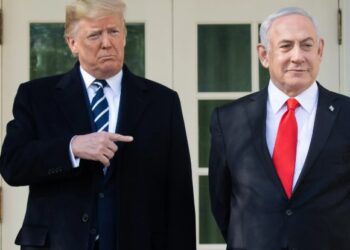As the UK election results start to unfold, Stephen Dixon from GB News reported live from Camden, capturing the palpable excitement and surprise of the evening. The verification process is underway, with ballot boxes steadily arriving and officials diligently at work. The anticipation is building, and as the night progresses, Dixon highlighted key developments and unexpected outcomes.
One of the most notable events is the projected landslide victory for the Labour Party. “When the exit poll announced this Labour landslide, there were cheers and whoops here in Camden,” Dixon reports. The scale of Labour’s victory is astonishing, with projections suggesting the largest majority for the party since Tony Blair’s triumph in 1997. Such a result has sparked reactions from political commentators and party members alike, with some describing it as a “tsunami” rather than a mere landslide.
Patrick McFadden, Labour’s General Election Coordinator, expressed his enthusiasm for the transformative potential of this victory, indicating a busy weekend ahead as the new government gears up to implement its agenda. The projected defeat of prominent Conservative figures such as Jeremy Hunt, Grant Shapps, Penny Mordaunt, Iain Duncan Smith, and Jacob Rees-Mogg adds to the shockwaves reverberating through the political landscape.
Yet, amidst Labour’s triumph, another significant narrative is emerging: the unexpected success of Reform UK, led by Nigel Farage. According to the exit polls, Reform UK is poised to secure 13 MPs, far exceeding expectations. This development represents a substantial advance for the party and marks a critical juncture in Farage’s ongoing political journey.
Throughout the election campaign, Farage has been vocal about his ambitions for Reform UK. The potential election of 13 MPs provides a strong foundation for his five-year plan to reshape the right-wing political spectrum. Farage’s influence, often dubbed the “Farage Factor,” appears to have resonated with voters, contributing significantly to the party’s performance.
Dixon underscores the significance of these results, particularly for the Conservative Party. With projections showing the Tories reduced to 131 MPs, this represents their lowest tally in modern political history. The party now faces an existential challenge, struggling to maintain its relevance and recover from this electoral blow.
As the counting continues at various locations, including Clacton Leisure Centre, the atmosphere is charged with anticipation, according to GB News. While the postal votes are being verified, the main votes are expected to be announced soon. Dixon notes the absence of Farage and other prominent candidates at this stage but highlights the positive feedback received by Reform UK activists during their campaign efforts.
The success of Reform UK extends beyond Farage’s own candidacy. Key figures such as Richard Tice and Lee Anderson, who previously switched allegiance from the Conservatives to Reform UK, are also predicted to perform well. These developments underscore the broader appeal of the party and suggest a significant shift in the UK’s political dynamics.
The UK election results are shaping up to be a night of surprises and significant changes. Labour’s projected landslide victory marks a dramatic shift in the political landscape, while Reform UK’s unexpected success heralds a new era for right-wing politics under Nigel Farage’s leadership. As the final results come in, all eyes remain on these emerging trends and their implications for the future of UK politics.





